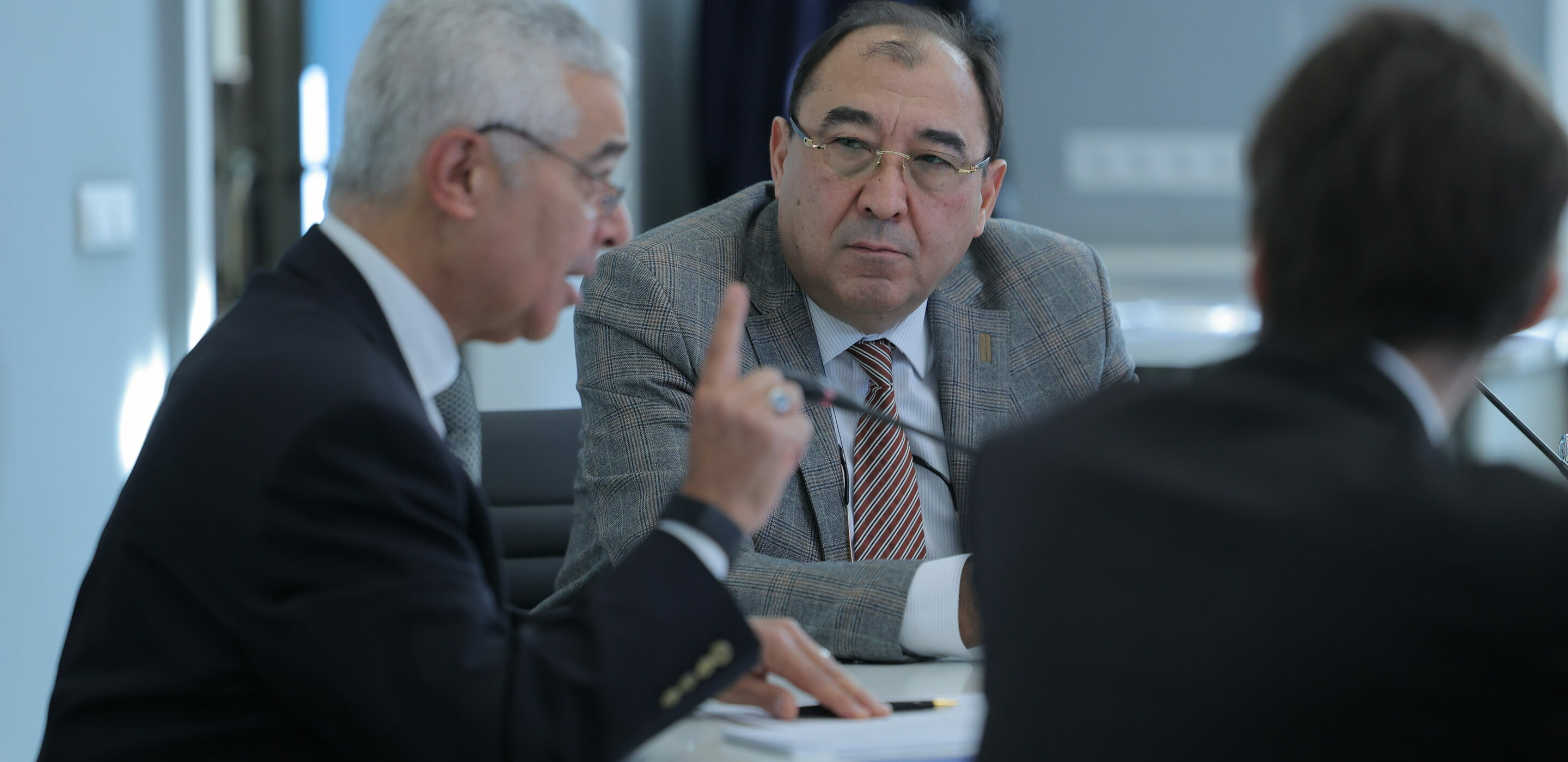Landmark WTO training programme launches for Uzbek policymakers
08.02.2024 1916The University of World Economy and Diplomacy (UWED) in Tashkent will teach a comprehensive trade policy training programme to policymakers. The goal is to build Uzbekistan’s long-term institutional trade capacity.
UWED, in collaboration with the International Trade Centre (ITC), on 27 January 2024 launched the extensive 11-course programme on topics linked to the World Trade Organization (WTO). The programme, to be taught by international trade experts alongside UWED professors, is tailored for Uzbekistan’s negotiators, policymakers, and other interested officials. The training sessions will run over the next four months, to provide comprehensive insights into WTO matters.
As the country moves closer to joining the WTO, building institutional know-how to align national policies and laws with WTO requirements is crucial to help unlock benefits from joining the multilateral trading system. The programme acts as an accelerator to enhance knowledge about WTO trade topics – known as a field of formidable complexity.
UWED equipped for the task
In 2022, the reputable World Trade Institute (WTI) in Bern developed a customized postgraduate course in WTO law and practice for UWED. ITC commissioned this work with funding from the European Union. WTI also gave UWED professors intensive training so they can teach the course.
This made UWED well-equipped to lay the academic foundation for a new generation of trade policymakers, diplomats, and practitioners to guide Uzbekistan’s foray into the global economy.
The launch marked a ‘significant milestone’ on the road to a sustainable WTO membership, said Thomas Huet, Chargé d’Affairs at the EU Delegation in Uzbekistan, at the opening.
The evolving complexities of global trade in the face of rapid advances in technology meant ‘continuous capacity building was paramount’, Huet remarked.
Trade veteran gives first classes
Some 40 trainees attended the first two days of courses, presented by Hamid Mamdouh, a senior counsel at trade law firm King & Spalding.
On the first day, he explained the basic principles of non-discrimination (most-favoured nations and national treatment) and introduced the key agreements under the WTO umbrella. The terrain covered a brief overview of the agreements for each of the WTO’s three broad areas of trade: goods, services and intellectual property. The course also covered dispute settlement, and reviews of governments’ trade policies.
On 28 January, the fundamentals of trade in services (regulated by the GATS) and trade-related investment measures (so-called TRIMS) were under the lens.
The seminar emphasized fostering cooperation to ensure successful reforms and to facilitate Uzbekistan's accession to the WTO.
Not only government officials stand to benefit. Umid Yakubhodjaev, Dean of faculty at UWED, who teaches the postgraduate WTO law programme, said the various courses would also be open to private practitioners when space permitted.
About the project
The ITC is the implementing partner of the European Union’s Facilitating the process of Uzbekistan’s accession to the WTO project. The five-year initiative seeks to support Uzbekistan's development plans to modernize its economy by leveraging its WTO accession process. The overarching objective of the project is to contribute to the country’s economic development.

